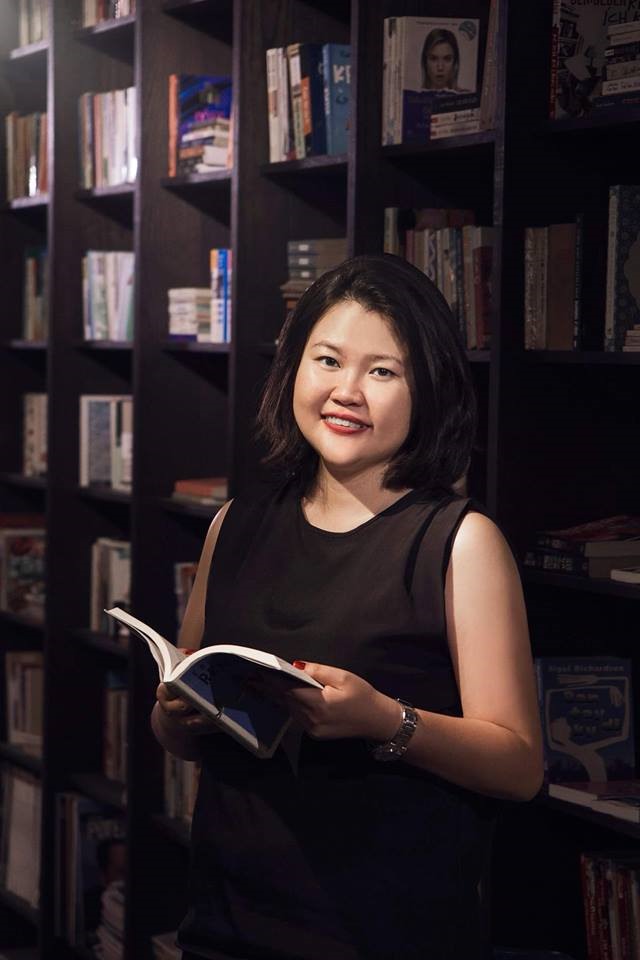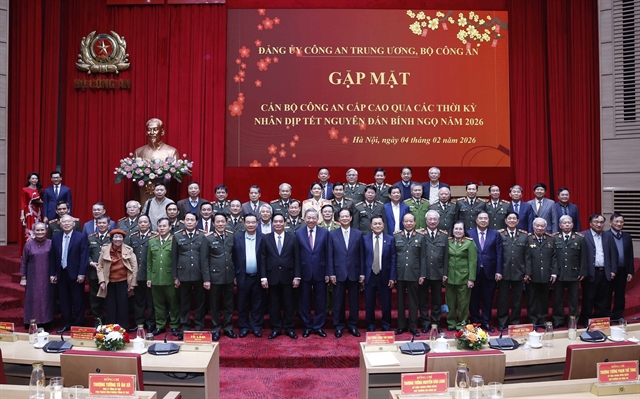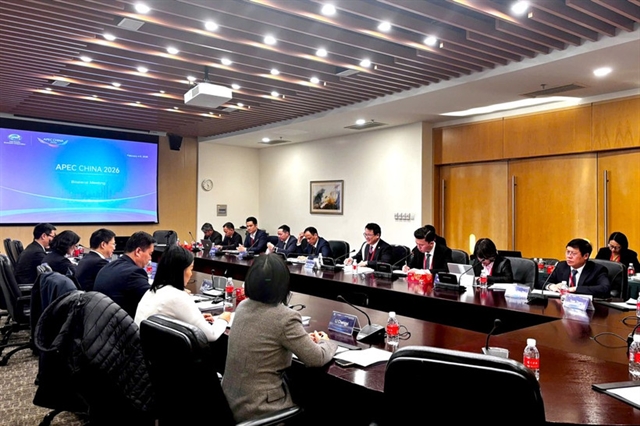 Inner Sanctum
Inner Sanctum

Standing behind the success of The Tailor (Cô ba Sài Gòn), Tèo Em, Siêu sao Siêu ngố and several other movies, screenwriter and director Kay Nguyễn tells Khoa Thư the story of the country’s emerging commercial cinema scene and how a screenwriter can catch the new wave.
 |
| Kay Nguyễn |
Standing behind the success of The Tailor (Cô ba Sài Gòn), Tèo Em, Siêu sao Siêu ngố and several other movies, screenwriter and director Kay Nguyễn tells Khoa Thư the story of the country’s emerging commercial cinema scene and how a screenwriter can catch the new wave.
Inner Sanctum: What led you into filmmaking?
My cinematic journey has just started and it seems like a flower bursting from a seed sowed 30 years ago.
I started watching movies at five after my grandmother died and we moved from the place where my dad and I were born. Our new life was turbulent and entertainment was a way to forget.
Some years later, after graduating from high school, I got a scholarship to study arts in the United States. I tried to study film, too, but was left behind by my American fellows as they had started recording and editing 8mm films at the age of ten.
Struggling to keep up with them, I chose screenwriting because it suited my strengths in writing. I was fortunate to work as a screenwriter and a director’s assistant on a movie while I was studying.
Life has many twists and turns. Finally, I told my best friend Tilo Nguyen, a Cornell Mathematics doctor who was getting tired of Wall Street, to give it up and start over. That’s how A Type Machine and Tilo-Kay Nguyen began.
Looking back, it was a long and tiring journey with many memories. Tilo and I plan to become the Nguyen Sisters, hoping to follow celebrated seniors like the Coen Brothers, the Nolan Brothers or the Wakowski Brothers.
Inner Sanctum: Your movie, The Tailor, has just been chosen to represent Việt Nam at the 91st Oscars in the Best Foreign Language Film award. As the director of a debut film, what have you learnt from The Tailor?
The first time’s a charm! I had chances to observe directors, producers and heads of departments working or studying at school, workshops and seminars. However, observing and doing are two very different things. In this industry, connections are the most important and the best thing for a director is to work with all department heads.
A director has three main responsibilities. First is to read the screenplay and interpret it into pictures. As I was a screenwriter cum director, this job seemed easy.
Second is to work with the cast. Thanks to the producer, I was lucky enough to collaborate with professional actors which is unusual for directors making their film debuts.
Pictures are third issue. I was fortunate to work with Hà Thúc Phù Nam, a Vietnamese-French cinematographer who is really good at processing pictures, and Trần Bửu Lộc, the co-producer and co-director, who understands Việt Nam’s market.
The Tailor has been a big success as it hits the right notes and approaches “gold mines” of content and trends. It clicks with youngsters and touches Vietnamese culture.
The success in terms of communication and box office results means I need to be careful about my next project as there is the famous saying in this industry: “You’re only as good as your next project.”
Inner Sanctum: Most directors or producers you have worked with are overseas Vietnamese. Is there any special reason for these collaborations?
Coming back to Việt Nam after finishing my studies, I had no connections in the industry.
It was fate that director Charlie Nguyễn approached me to say he was interested in my debut movie, 1735km, and as he was nurturing a road trip comedy, which later became Tèo Em, asked me to write the screenplay with him. I was then introduced to others such as Ngô Thanh Vân and Victor Vũ, who I collaborated with later on.
Inner Sanctum: Your first movie, 1735km, has been welcomed by both critics and audiences, but only seven years after its premiere. 1735km was initially considered as a box office failure. How have Vietnamese audiences’ tastes changed over years, and how do screenwriters respond to those changes?
While I was making 1735km in 2004, the first wave of private Vietnamese studios was taking off. The first kick was Long Legs by director Vũ Ngọc Đãng. Galaxy and BHD were among the studios on the scene.
In 2004, there was only one supplier of lighting systems and cameras. CGV, the largest film distributor and cinema operator in Việt Nam at present, had not yet arrived. Megastar, CGV’s precursor, had not opened their first cinema, and there were just a few State-owned cinemas.
There are many reasons for the failure of 1765km including the number of cinemas. Seven years later, when it was screened at Vietnamese movie week by BHD, 1735km was welcomed by audiences.
I think filmmakers try their utmost, and there is always a way to overcome failure.
The biggest failure to me is wrapping up and realising I’ve just made a disaster of a film. If you feel happy, you have a reason to keep pushing.
I like working on entertaining movies, and whether it’s for Vietnamese viewers or audiences around the world, you need a good storyline. Over the last 15 years, the internet has offered Vietnamese audiences better access to global cinema. They know what they want now and expect more.
With more cinemas being built there are more Vietnamese movies being screened. That’s when the market starts to adjust. The bad movies are filtered out and the good ones rise to the top.
The first and most important thing is the cinemas. That was also the challenge that 1735km faced. The rising number of cinemas is a positive signal.
Inner Sanctum: Your latest work, The Immortal, will premiere next week. Can you reveal something about the project?
The Immortal is a thriller and mystery. It came from an idea from Victor Vũ ten years ago. He inspired me with the story and decided to join this project.
The Immortal tells about the rise and fall of a man living through generations from the 19th century. He tolerates many injustices and is finally saved by a dark magician. He then uses black magic to exact his revenge. However, the more power he gets, the more bloodthirsty he becomes, and eventually sacrifices his own wife to gain immortality. However, the wife pursues him through the centuries. That’s the meaning of the tagline: “Life is scarier than death.”
Inner Sanctum: Besides working as a screenwriter, you were a judge on “Talented Screenwriter” hosted by CGV. Can you share something about this experience?
I’m excited because this contest will help newbies to enter the film industry. This year, even people with experience are taking part. A good story is the core of screenwriting, so if you have a good story, no matter who you are or where you are from, you have potential.
From the 4,000 screenplays we received, we chose the top 20, top 10 and then the top 3. I can feel the dynamic energy and the quality improve every time.
The hardest thing about screenwriting is that people learn how to write at an early age in primary school. Anyone can write or tell a story, but they do not completely understand the job or the effort it takes.
A screenplay is basically a technical text serving a movie that anyone on the crew can read and understand. It also has to be inspirational. I have high hopes of young people; they have good foundations and great stories. What they need to do now is try to express their talents. – VNS




